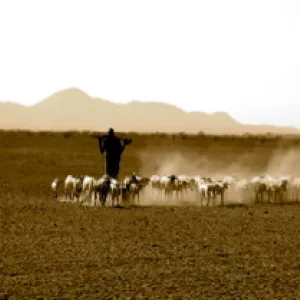Study reveals Africa will reach 1.5°C climate change threshold by 2040 even under low emission scenarios
New research highlighted in CABI Reviews suggests that all five subregions of Africa will breach the 1.5°C climate change threshold—the limit stipulated by the Paris Agreement—by 2040 even under low emission scenarios. A team of scientists from the University of Zimbabwe, the International Livestock Research Institute (ILRI) in Kenya, and the African Group of Negotiators Experts Support (AGNES) conducted a

Study reveals Africa will reach 1.5°C climate change threshold by 2040 even under low emission scenarios
New research highlighted in CABI Reviews suggests that all five subregions of Africa will breach the 1.5°C climate change threshold—the limit stipulated by the Paris Agreement—by 2040 even under low emission scenarios.
A team of scientists from the University of Zimbabwe, the International Livestock Research Institute (ILRI) in Kenya, and the African Group of Negotiators Experts Support (AGNES) conducted a literature review to develop a framework for just transition pathways for Africa’s agriculture towards low emission and climate resilient development under 1.5°C of global warming.
They found that despite Africa emitting less than 4% of global greenhouse gas emissions in the atmosphere, the 1.5°C climate change threshold will be approached by 2040 in all five subregions of Africa, even under low emission scenarios.

